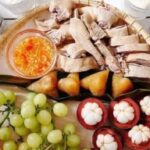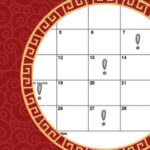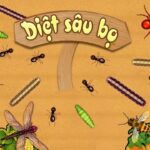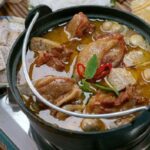The 5th of May in the lunar calendar is considered one of the unluckiest days in Vietnamese folk belief. Why does this date strike fear into the hearts of people, and where does this apprehension originate? Is this traditional belief still relevant in modern times?
1. What is the 5th of May in the lunar calendar?
The 5th of May in the lunar calendar, also known as Tết Đoan Ngọ or ‘Festival for Killing Insects’ in folk belief, is one of the traditional festivals marked by the belief that it is a day to exorcise evil and kill insects to protect health and crops.
‘Đoan’ means the beginning, and ‘Ngọ’ refers to the period between 11 am and 1 pm. Tết Đoan Ngọ marks the transition of weather, with the extreme dominance of yang energy and the arrival of the hottest and most sultry phase of summer.
Although it carries the positive meaning of ‘killing insects and diseases’, this day is associated with numerous taboos and anxieties of ancient times.
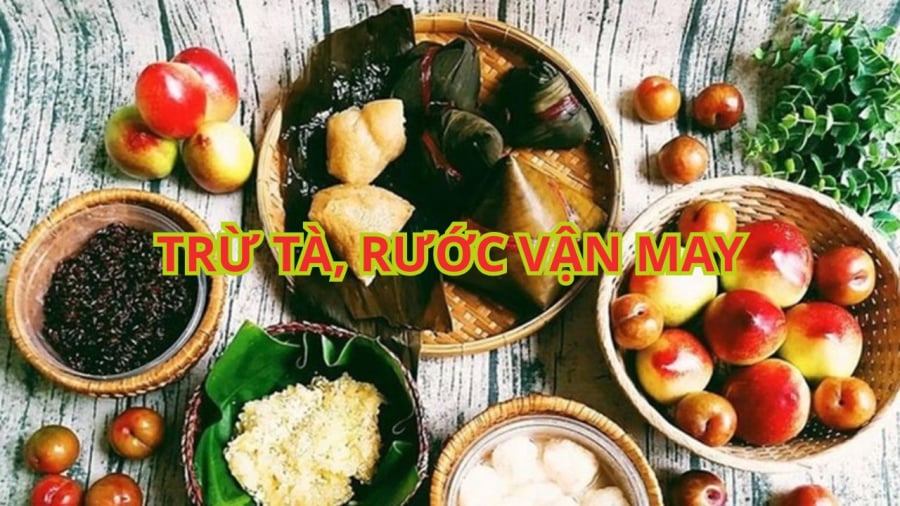
2. Why were people afraid of the 5th of May in the lunar calendar?
First fear: This day coincides with poisonous weather – extreme yang energy
According to the philosophy of yin and yang and the five elements, the 5th of May in the lunar calendar falls at a time when yang energy starts to rise to its peak. The high temperatures can easily generate evil energy, affecting people’s health. The elderly, children, and those with weak bodies are more prone to colds, fever, sunstroke, or summer infectious diseases.
Ancients believed that an extreme dominance of yang energy would disrupt the yin-yang balance, leading to bad luck and spiritual and financial losses.
In reality, this is the time when the summer heat reaches its peak, negatively impacting human health and causing sudden illnesses, dizziness, strokes, and fainting.

Second fear: Coinciding with the “Monthly Taboo” – an ominous day in folk belief
The saying, “the 5th, 14th, and 23rd are bad days for going out or doing business” is a traditional teaching. According to folk belief, these three days are considered “Monthly Taboos” when the moon, sun, and earth are positioned to cause energy conflicts, negatively influencing people.
It is believed that conducting important events such as weddings, traveling, openings, or signing contracts on these days can lead to obstacles, losses, and failures.
Among these days, the 5th is considered the unluckiest because the number 5 belongs to the earth element, but it coincides with the 5th month, which also belongs to the earth element, resulting in “earth against earth”, which is considered unfavorable and financially detrimental.
Therefore, folk belief holds that the 5th of May is an unlucky day for any undertaking, making it a feared date.
Third fear: Mysterious and supernatural stories associated with this day
In legends and spiritual life, the 5th of May in the lunar calendar is also linked to mysterious stories. Some believe that on this day, various “insects and evil energies” refer not only to physical pests but also to evil spirits and negative forces that are active and harmful to humans.
In many regions, people hang pentagonal amulets, wear red threads, or give children glutinous rice wine and sour fruits like plums and lychees to “exorcise evil energies” and protect their health.
3. Taboos on the 5th of May in the lunar calendar
Ancients avoided the following activities on the 5th of May:
- Not conducting important events: No weddings, openings, construction starts, contract signings, house or car purchases, etc.
- Not traveling far: Especially by water or through forests, and avoiding rivers, lakes, or treacherous terrain.
- Not speaking ill: Avoiding arguments and quarrels to prevent gossip and bad luck for the rest of the month.
- Not lending or borrowing money or valuables: It is believed that letting money out of the house on this day will result in financial losses for the year.
- Not staying hungry in the morning: Ancients believed that eating early in the morning (glutinous rice wine and sour fruits) would help kill bacteria, protecting the body.
4. Traditional rituals on Tết Đoan Ngọ
Tết Đoan Ngọ is an important festival with many beautiful cultural aspects:
Offering rituals: In the early morning, families prepare offerings of glutinous rice wine, ash cake, plums, lychees, mangoes, and jackfruits to their ancestors and to ‘kill insects.’
Consuming glutinous rice wine and sour fruits: Believed to kill bacteria, cleanse the intestines, and prevent diseases.
Eating duck meat to ward off bad luck.
Taking herbal baths (with herbs like lemon balm, lemongrass, and grapefruit leaves): Considered a way to exorcise evil, cool down, and purify the body.
Wearing pentagonal amulets: Given to children for good luck, protection against evil, and disease prevention.
5. Modern perspective: Should we maintain or discard this fear?
Today, many ancient beliefs have been re-evaluated from a scientific perspective. Extreme taboos can affect psychology and delay necessary actions. However, it is undeniable that many traditional customs on the 5th of May are also health-preserving and suitable for the summer climate.
From consuming cooling glutinous rice wine and fruits to taking herbal baths and advising against traveling long distances, these are all good habits when viewed through the lens of modern medicine and a healthy lifestyle.
The fear of the 5th of May in ancient times was not entirely due to blind superstition but arose from keen and profound observations of nature, health, and feng shui. Today, while life has changed, it is essential to selectively approach and adapt these beliefs reasonably, preserving traditional beauty while staying in tune with modern life.
Reference for contemplation
What is the Triple Noun Day? Do’s and Don’ts for the Day.
In folk beliefs, the Three Avoidances Day is considered an unlucky day. Join us as we delve into the significance of this day and uncover what it entails. Learn about the cultural practices and traditions associated with this day and discover how people navigate through its challenges. Explore the mysteries and superstitions surrounding the Three Avoidances Day and gain insights into its impact on daily life.
























